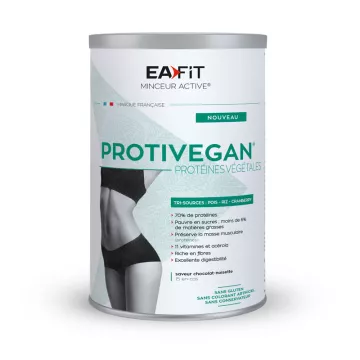

What is a high-protein diet and why is it important?
A hyper-protein diet is an eating plan that emphasizes high protein consumption. Protein is essential for many bodily functions, including muscle repair and growth, as well as the proper functioning of the immune system. This type of diet is particularly popular among athletes, bodybuilders, and those seeking to lose weight without losing muscle.
What are the main benefits of a high-protein diet?
The benefits of a high-protein diet include increased satiation and reduced appetite, which can help control weight. Proteins have a high thermic effect and require more energy to metabolize, which can also promote weight loss. In addition, a protein-rich diet supports muscle recovery and can contribute to better body composition by increasing muscle mass.
Which protein sources should I choose for a high-protein diet?
For an effective high-protein diet, it's advisable to focus on complete protein sources that contain all the essential amino acids. The best sources include
How do I plan my meals on a high-protein diet?
Planning your meals on a high-protein diet involves incorporating protein sources into every meal and balancing your intake with vegetables, fruit and healthy fats. Here's a typical meal structure:
It's also essential to drink enough water and stay hydrated throughout the day.
What are the possible risks of a high-protein diet?
While the benefits of a high-protein diet are numerous, it's important to be aware of the potential risks, especially if followed over a long period. Excessive protein consumption can put extra strain on the kidneys, and it's crucial to consult a healthcare professional before making any significant changes to your diet. In addition, it's important not to neglect other essential nutrients, such as fiber, vitamins and minerals.
How much protein should I consume daily on a high-protein diet?
The recommended amount of protein may vary depending on a number of factors, such as age, gender, level of physical activity and personal goals (muscle gain, weight loss, etc.). In general, guidelines suggest an intake of between 1.2 and 2.2 grams of protein per kilogram of body weight for those who are active. For athletes and bodybuilders, this intake may even increase. It is advisable to consult a dietician to adapt protein intake to your specific needs.
Is it possible to follow a high-protein diet as a vegetarian or vegan?
Yes, it's perfectly possible to follow a high-protein diet as a vegetarian or vegan. There are many plant-based protein sources that can be incorporated into your diet. These include
What protein supplements do you recommend for a high-protein diet?
As part of a high-protein diet, certain supplements may be useful for achieving your protein intake goals, including:
It's important to choose quality supplements and consult a health professional before starting any supplementation.
How can I avoid nutritional deficiencies on a high-protein diet?
To avoid deficiencies, it's crucial not to limit yourself to protein alone. Make sure you include a wide variety of foods in your diet, such as:
Careful meal planning and, if necessary, the use of dietary supplements can help maintain nutritional balance.
What is the long-term impact of a high-protein diet on health?
Research into the long-term effects of high protein consumption is still ongoing. However, some studies indicate that very high protein intakes, particularly of animal origin, may be associated with certain health risks, such as kidney disease and an increased risk of cardiovascular disease. To minimize these risks, we recommend :
By following these recommendations, you can enjoy the benefits of a high-protein diet while minimizing potential health risks.